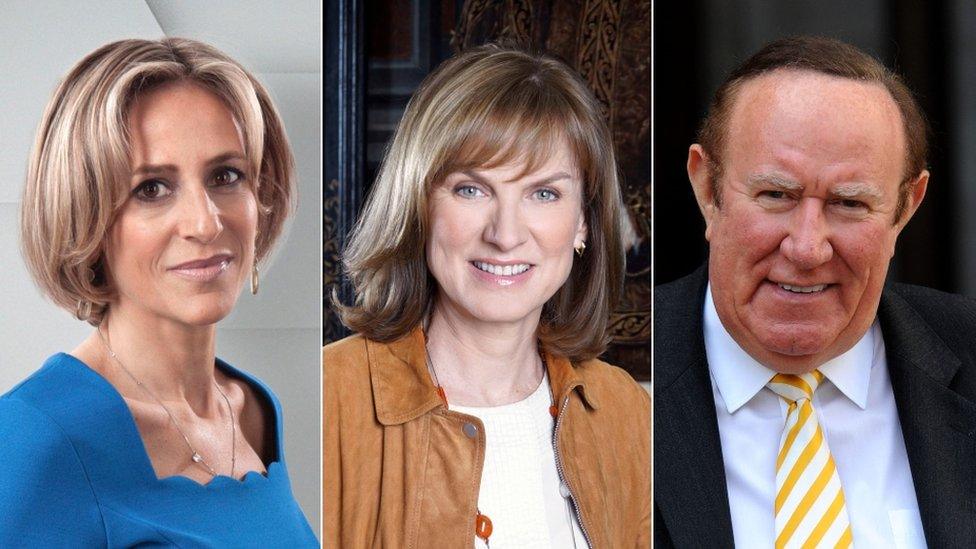Michael Gove: Cocaine 'mistake' a 'deep regret'
- Published
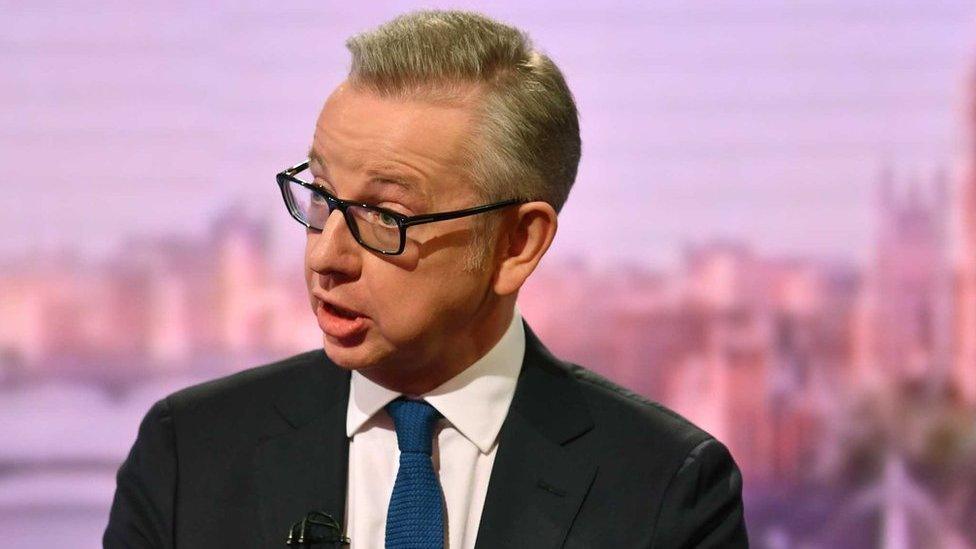
Tory leadership candidate Michael Gove has said he "deeply regrets" taking cocaine more than 20 years ago.
He told the Daily Mail that he had taken the drug at several "social events" while working as a journalist.
The environment secretary said he believed the "mistake" should not be held against him in his bid to become prime minister.
Members of the party are due to vote for a new party leader after Theresa May stepped down from the role.
Mr Gove, who served as justice secretary from 2015-16, is one of 11 Tory MPs who have said they intend to stand in the contest to replace her, with the winner expected to be announced in late July.
International Development Secretary Rory Stewart, who is one of those standing against him, has already apologised for smoking opium, external - a class A drug in the UK - at a wedding in Iran 15 years ago.
Boris Johnson - who is the favourite to succeed Mrs May as Conservative leader - was asked about claims he had taken cocaine at university by Marie Claire magazine in 2008.
He replied: "That was when I was 19."
In an appearance on Have I Got News For You in 2005, he admitted being given the drug but suggested he had not actually taken it, saying: "I think I was once given cocaine but I sneezed and so it did not go up my nose. In fact, I may have been doing icing sugar."
And Foreign Secretary Jeremy Hunt - another candidate - told the Times, external he had drunk a cannabis lassi while backpacking through India.
Mr Gove told the Mail, external: "I took drugs on several occasions at social events more than 20 years ago. At the time I was a young journalist. It was a mistake. I look back and I think I wish I hadn't done that.
"I think all politicians have lives before politics. Certainly when I was working as a journalist I didn't imagine I would go into politics or public service.
"I didn't act with an eye to that. The question now is that people should look at my record as a politician and ask themselves, 'Is this person we see ready to lead now?'
"I have seen the damage drugs can do to others and that is why I deeply regret the decisions I took," he added.
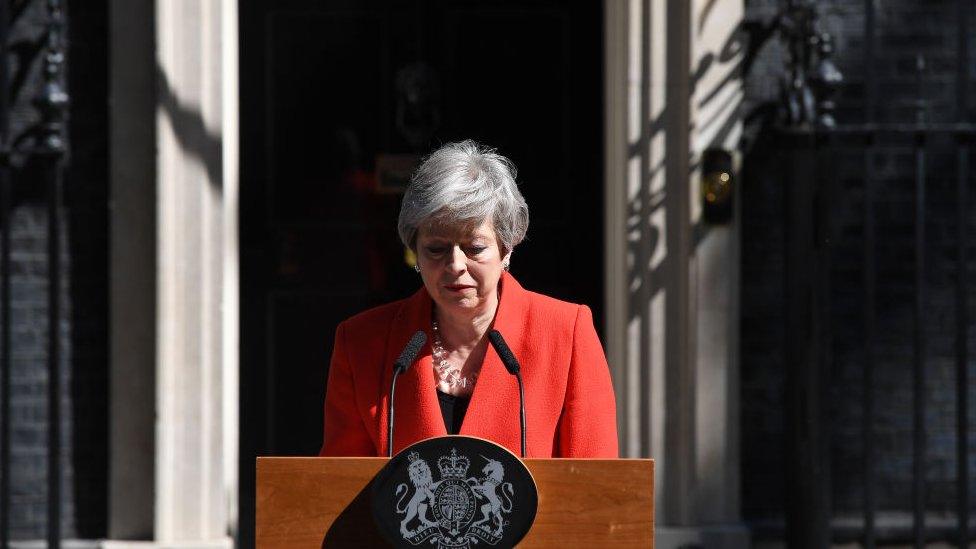
Theresa May will stay on as prime minister until her successor is chosen

Analysis
By Peter Saull, BBC political correspondent
Michael Gove has widespread support among Conservative MPs.
As a Brexiteer, and with a wealth of cabinet experience, he ticks many boxes for his colleagues.
The environment secretary is expected to sail through the first few rounds of voting in Parliament.
But if he makes it to the final two, rank and file Tories might not quite be ready to forgive his past misdemeanours.
The 120,000 or so members are largely older people - and while it might not be the central issue in this leadership contest, they may take a dimmer view of drug-taking than younger generations.
It is notable that other candidates also seem to be taking the "honesty is the best policy" approach.
They have to tread carefully. The Tory membership is Conservative by name and conservative by nature.

Speaking to BBC Radio 4's Today programme, Daily Mail assistant editor Simon Walters - who interviewed Mr Gove - said the confession was unlikely to affect support from MPs or party members in London - but that could change further away from the capital.
He said: "In London, in metro-land, Tories in leafy Putney won't think much about it... but out in places like Petersfield in Hampshire when the membership decides, they take a more traditional view about these things and they may well feel it's a serious matter."
He added: "I think he should be praised for his candour."
Mr Gove's fellow Tory leadership hopeful Dominic Raab, who has previously admitted smoking cannabis, told Today: "I think Michael has set out that he made a mistake.
"It was a long time ago, people will judge it as it is but I do believe in a second chance society."
He added: "I certainly don't feel it's barred him from this race in any way."
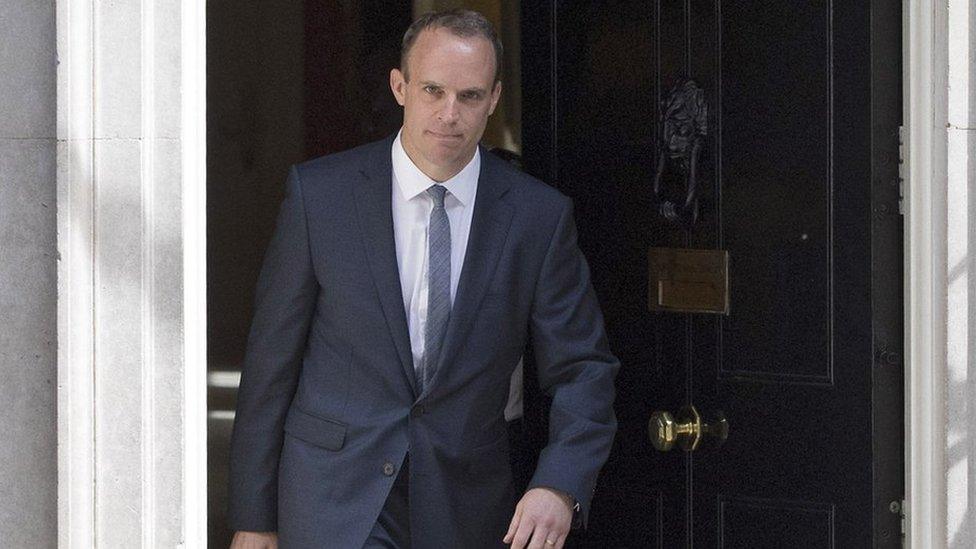
Tory leadership hopeful Dominic Raab said he believed in second chances
On Friday, Mrs May officially stepped down as the leader of the Conservative Party, but will remain as prime minister until her successor is chosen.
Leadership nominations will close at 17:00 BST on Monday, the party has said.
Leadership candidates need eight MPs to back them. MPs will then vote for their preferred candidates in a series of secret ballots held on 13, 18, 19 and 20 June.
The final two will be put to a vote of members of the wider Conservative Party from 22 June, with the winner expected to be announced about four weeks later.

On Tuesday 18 June BBC One will be hosting a live election debate between the Conservative MPs who are still in the race.
If you would like to ask the candidates a question live on air, use the form below. It should be open to all of them, not a specific politician.
If you are reading this page on the BBC News app, you will need to visit the mobile version of the BBC website, external to submit your question on this topic.
- Published18 July 2019
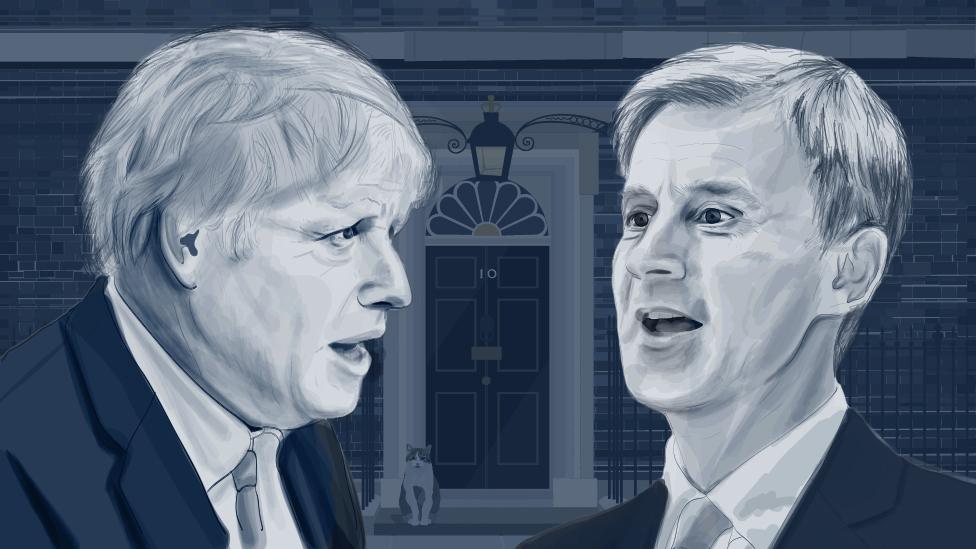
- Published10 July 2024
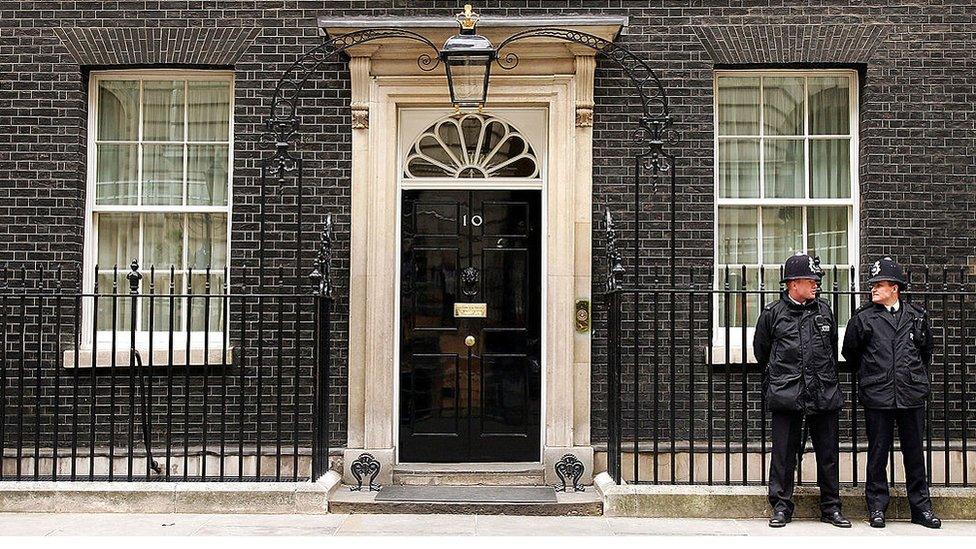
- Published28 May 2019
